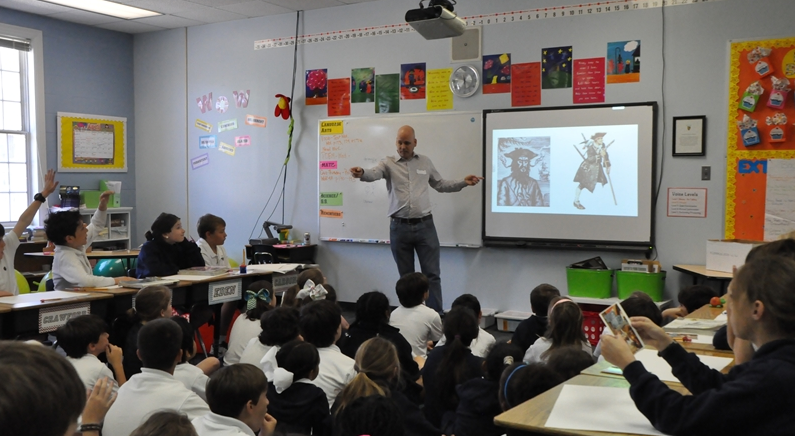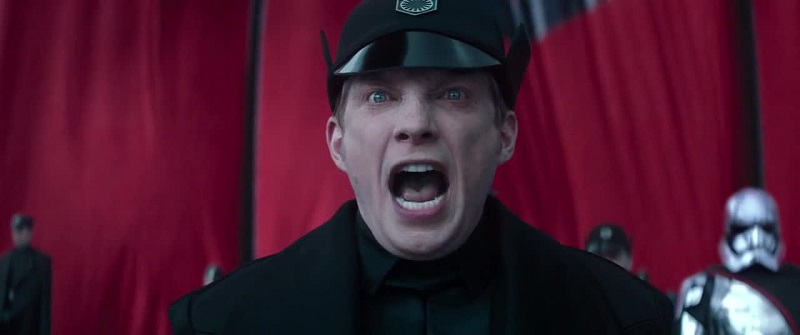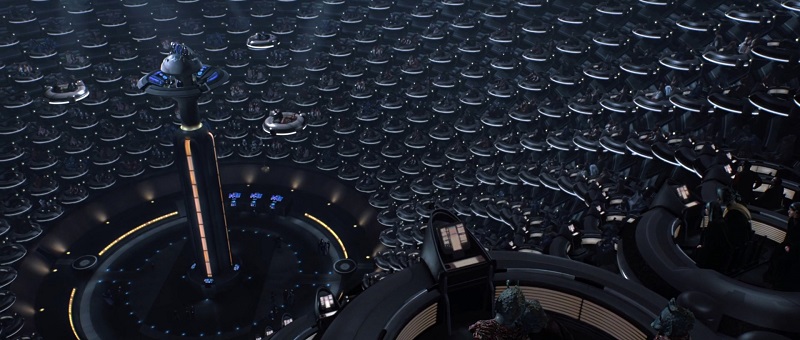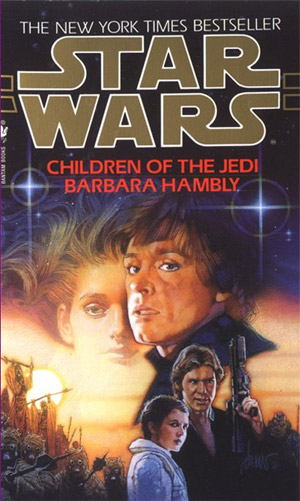
Welcome to the second half of Worldbuilding with Jason Fry! In lieu of imminent Star Wars news, this interview serves any aspiring authors out there as a primer on the development of a fictional universe, based on the lessons Jason has learned from his ongoing series The Jupiter Pirates. On Friday, we began with the broadest of strokes, namely the fictional history of a future-set story and how you get from Point A to Point B (spoiler: start with B), and moved on to original characters, and how to approach the morality of your protagonist and supporting characters. Below we’ll continue that line of thought, then move on to superficial details (or are they?) like character names, and what to do when you’re tempted to retcon something. Enjoy!
While we’re discussing morality, I want to close out this section with something that’s been in the back of my head since I read the first book, Hunt for the Hydra. Even in a universe that’s billed as space fantasy—meaning not especially subject to realism—it’s always sort of uncomfortable for me to read a story set in a future that’s not explicitly dystopian but nevertheless seems to have regressed in social areas. What I’m thinking of specifically is the crewers aboard the Shadow Comet; they come across very clearly as a lower class than the Hashoones, often if not always less educated and mannered, and in some cases are even the second or third or god-knows-what generation of their family to serve as gunners or cooks or what-have-you for the Hashoone family. There’s no indication that they’re particularly unhappy or underpaid, but nevertheless it’s very easy to get a whiff of “indentured servitude” here—and I can only imagine how much worse it is on other ships.
In an historically-set pirate story I’m sure this kind of thing would be very accurate, but I have to admit it’s sort of depressing to read about a society this far in the future that still has such gigantic class disparities, and it’s always in the back of my head when Tycho and Yana are ordering around people two or three times their age, or visiting slums on what seems like every moon they come across, or fending off press gangs in your short story “The Trouble With Crimps”. Am I overthinking this? Do you see it as a necessary evil for a pirate story that you worked backwards to justify, or worse, do you think the story is subtlely making the case that this is something we’ll never get past? Read More



